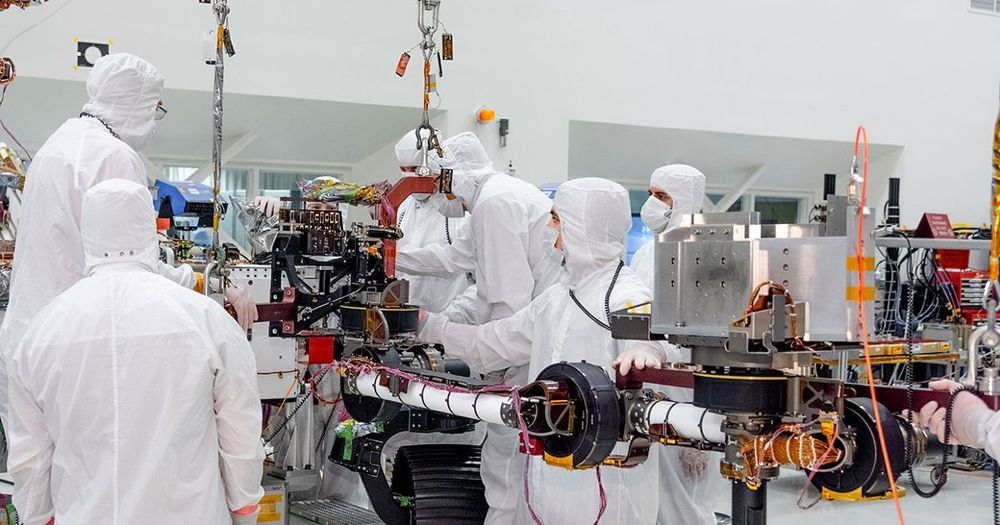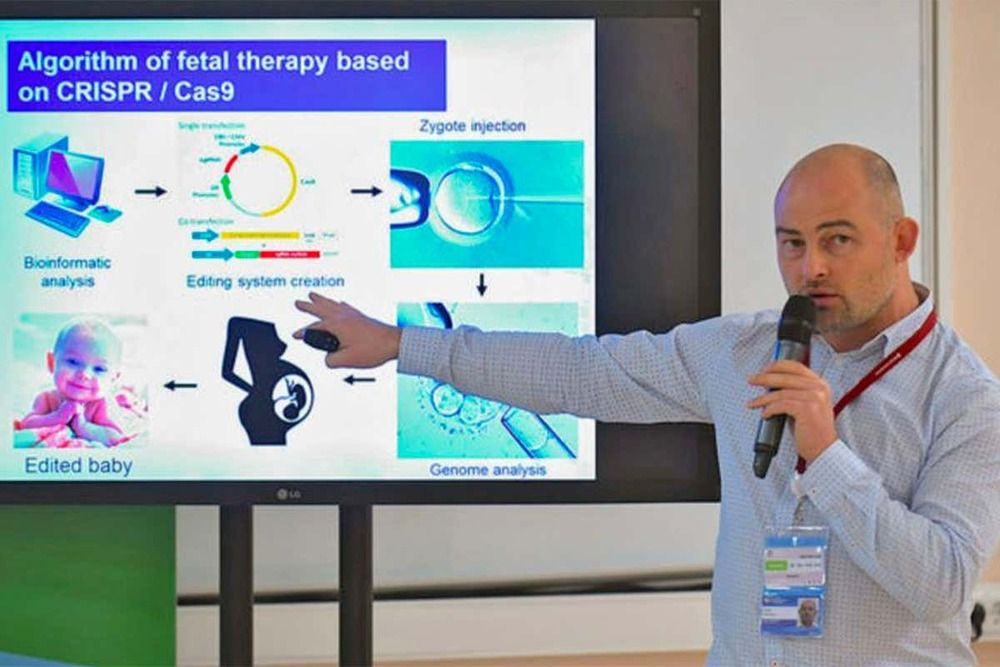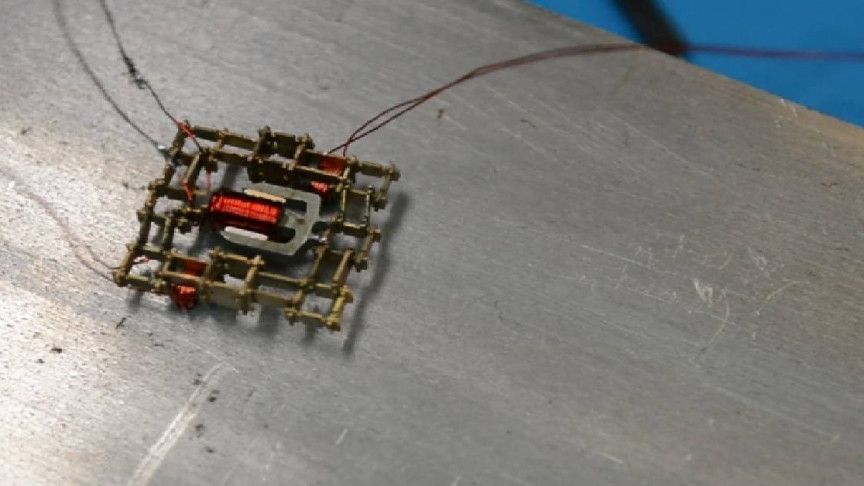Page 8571
Jul 4, 2019
Gorgeous Footage of a Camouflaged Lichen Katydid Delicately Walking Along Its Matching Branch
Posted by Quinn Sena in category: futurism
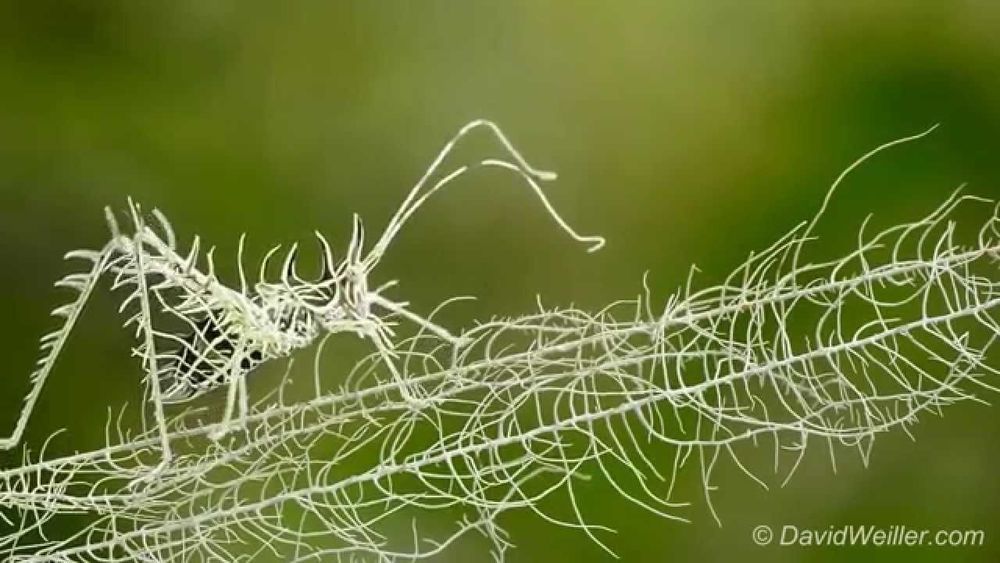
Talented wildlife photographer David Weiller has captured absolutely gorgeous footage of a beautiful markia hystrix, better known as a lichen katydid as it delicately walked along the branch of a tree covered in the distinctive white filamentous lichen for which the graceful insect was named. The insect-focused blog Nature and Moretells has more information on these beautiful creatures.
Katydids comprise a diverse group of insects particularly well adapted to survival in rainforest because of their exceptional camouflage. Most katydids are well camouflaged with brown or leaflike green markings. The Lichen Katydid, Markia hystrix (Orthoptera – Tettigoniidae), however, has one of the most incredible camouflages of all. It resembles the pale greenish-white lichens on which it lives in rainforest treetops. Not only does the color match the lichens, but the body and legs have a bizarre assortment of spines and points that blend well with lichens, in fact, so well that this insect is extremely difficult for predator to find.
Jul 4, 2019
This Is the Most Powerful Robot Arm Ever Installed on a Mars Rover
Posted by Genevieve Klien in categories: robotics/AI, space
Last month, engineers at NASA’s Jet Propulsion Laboratory wrapped up the installation of the Mars 2020 rover’s 2.1-meter-long robot arm. This is the most powerful arm ever installed on a Mars rover. Even though the Mars 2020 rover shares much of its design with Curiosity, the new arm was redesigned to be able to do much more complex science, drilling into rocks to collect samples that can be stored for later recovery.
JPL is well known for developing robots that do amazing work in incredibly distant and hostile environments. The Opportunity Mars rover, to name just one example, had a 90-day planned mission but remained operational for 5,498 days in a robot unfriendly place full of dust and wild temperature swings where even the most basic maintenance or repair is utterly impossible. (Its twin rover, Spirit, operated for 2,269 days.)
To learn more about the process behind designing robotic systems that are capable of feats like these, we talked with Matt Robinson, one of the engineers who designed the Mars 2020 rover’s new robot arm.
Jul 4, 2019
Exclusive: Five couples lined up for CRISPR babies to avoid deafness
Posted by Genevieve Klien in categories: biotech/medical, genetics
Russian biologist Denis Rebrikov plans to help five couples who are deaf try CRISPR gene-editing to avoid having a child that inherits the condition.
Jul 4, 2019
SpaceX camera captures incredible view of rocket part returning to Earth
Posted by Genevieve Klien in categories: electronics, space travel
Jul 4, 2019
This Is How Mastering Dark Matter Could Take Us To The Stars
Posted by Paul Battista in category: cosmology
It’s found everywhere we know how to look, and just might be nature’s perfect fuel. Here’s how to harness it.
Jul 4, 2019
Cancer cell’s “self eating” tactic may be its weakness
Posted by Paul Battista in categories: biotech/medical, education, food
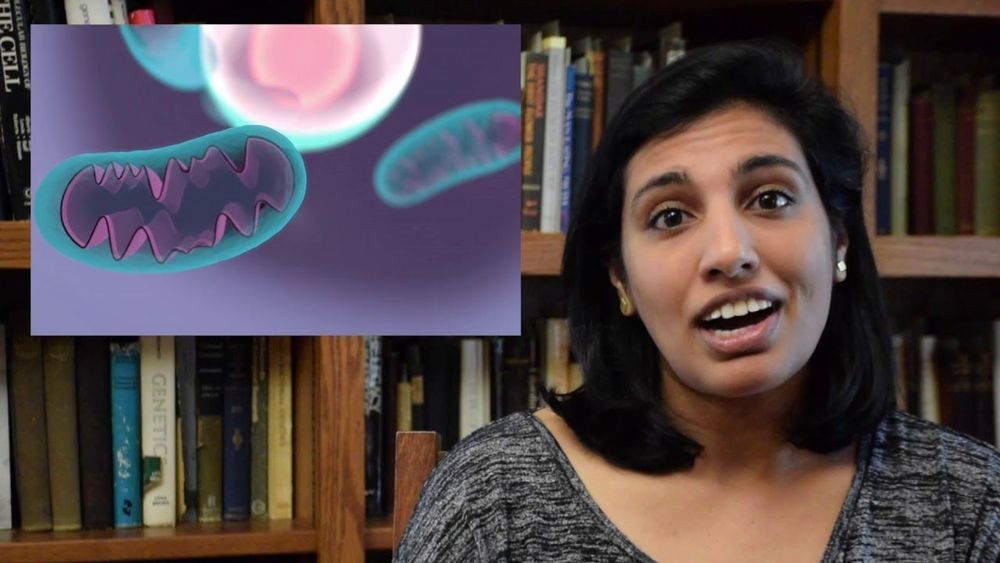
Cold Spring Harbor, NY — Cancer cells use a bizarre strategy to reproduce in a tumor’s low-energy environment; they mutilate their own mitochondria! Researchers at Cold Spring Harbor Laboratory (CSHL) also know how this occurs, offering a promising new target for pancreatic cancer therapies.
Why would a cancer cell want to destroy its own functioning mitochondria? “It may seem pretty counterintuitive,” admits M.D.-Ph. D. student Brinda Alagesan, a member of Dr. David Tuveson’s lab at CSHL.
Continue reading “Cancer cell’s ‘self eating’ tactic may be its weakness” »
A team of MIT researchers has created a set of five parts to work in an array of ways and create different robots.
Jul 4, 2019
Largest earthquake in decades hits Southern California, measuring 6.4 magnitude
Posted by Genevieve Klien in category: futurism
The 10:33 a.m. quake was centered in the Searles Valley, a remote area of Kern County about 100 miles north of Los Angeles, and was felt as far away as Long Beach and Las Vegas.
Jul 4, 2019
Ultra-small nanoprobes could be a leap forward in high-resolution human-machine interfaces
Posted by Paul Battista in categories: biotech/medical, cyborgs, neuroscience
Machine enhanced humans — or cyborgs as they are known in science fiction — could be one step closer to becoming a reality, thanks to new research Lieber Group at Harvard University, as well as scientists from University of Surrey and Yonsei University.
Researchers have conquered the monumental task of manufacturing scalable nanoprobe arrays small enough to record the inner workings of human cardiac cells and primary neurons.
The ability to read electrical activities from cells is the foundation of many biomedical procedures, such as brain activity mapping and neural prosthetics. Developing new tools for intracellular electrophysiology (the electric current running within cells) that push the limits of what is physically possible (spatiotemporal resolution) while reducing invasiveness could provide a deeper understanding of electrogenic cells and their networks in tissues, as well as new directions for human-machine interfaces.

